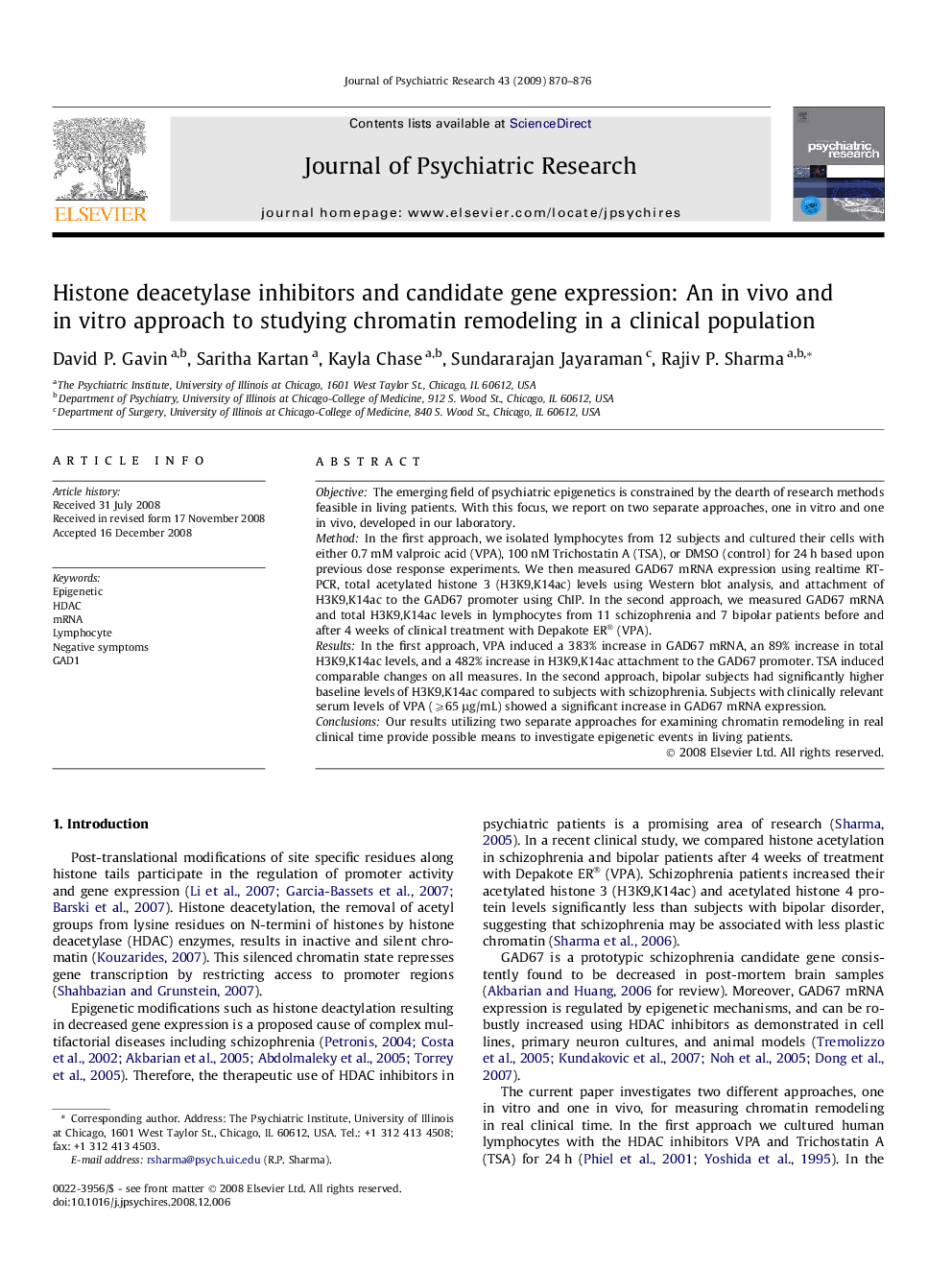| Article ID | Journal | Published Year | Pages | File Type |
|---|---|---|---|---|
| 327559 | Journal of Psychiatric Research | 2009 | 7 Pages |
ObjectiveThe emerging field of psychiatric epigenetics is constrained by the dearth of research methods feasible in living patients. With this focus, we report on two separate approaches, one in vitro and one in vivo, developed in our laboratory.MethodIn the first approach, we isolated lymphocytes from 12 subjects and cultured their cells with either 0.7 mM valproic acid (VPA), 100 nM Trichostatin A (TSA), or DMSO (control) for 24 h based upon previous dose response experiments. We then measured GAD67 mRNA expression using realtime RT-PCR, total acetylated histone 3 (H3K9,K14ac) levels using Western blot analysis, and attachment of H3K9,K14ac to the GAD67 promoter using ChIP. In the second approach, we measured GAD67 mRNA and total H3K9,K14ac levels in lymphocytes from 11 schizophrenia and 7 bipolar patients before and after 4 weeks of clinical treatment with Depakote ER® (VPA).ResultsIn the first approach, VPA induced a 383% increase in GAD67 mRNA, an 89% increase in total H3K9,K14ac levels, and a 482% increase in H3K9,K14ac attachment to the GAD67 promoter. TSA induced comparable changes on all measures. In the second approach, bipolar subjects had significantly higher baseline levels of H3K9,K14ac compared to subjects with schizophrenia. Subjects with clinically relevant serum levels of VPA (⩾65 μg/mL) showed a significant increase in GAD67 mRNA expression.ConclusionsOur results utilizing two separate approaches for examining chromatin remodeling in real clinical time provide possible means to investigate epigenetic events in living patients.
